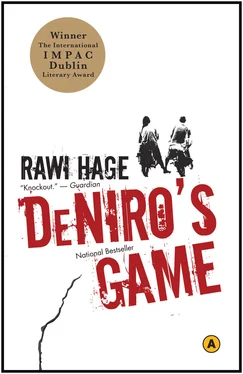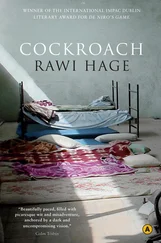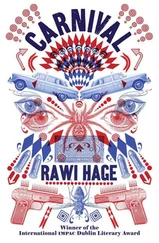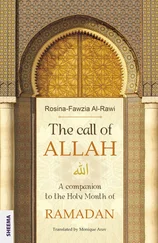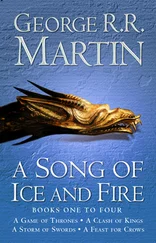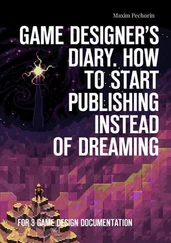Could you describe George to me? Rhea asked one night. In detail? I asked.
She smiled. I said, He has your green eyes and your father’s smile. He is dark-skinned, more like my colour. We are almost the same height. He has straight black hair that always fell on his face. He never wore glasses. He has a hooked nose like tante Jamal, his mother. He is kind of skinny, but his arms have strength. You can tell by the veins that are always prominent in his arms.
Does he smoke?
Yes, he does.
What kind of cigarettes?
Marlboros.
What else does he do?
He rode a motorcycle. We went hunting together.
What did you hunt?
Birds, mostly birds.
That night, Rhea slept, but I stayed awake. I lay on my back for a while, then I walked to the window and from there to the back balcony. I smoked and looked at the few stars, and searched for the celestial bonfires, for Morse code signals from space.
AFTER WE MADE LOVE, Rhea’s questions would intensify. She wanted me to describe things, and she insisted on this like a neglected child. Is Beirut a big city? How do people dress? What was your mother like? Did you like your father?
Over dinner one evening, she opened wine and played French love songs. She invited me to sit on the floor next to her, and then she pulled out a photo album. Let’s look at photos, she said. Slowly, she turned the pages. I looked at photos of a young infant crawling the floors, Genevieve in 1970s dresses and pointy shoes and dark sunglasses, and Rhea in her father’s arms, with Africa in the background. This is my nanny, said Rhea, and that is me in Singapore. And this is at the kibbutz in Israel.
When were you there? I interrupted.
Not long ago, she said.
When I told her that George had gone there for military training, of course Rhea wanted to know all about it.
When was he there? Why was he in Israel? And how did he manage to go from Lebanon?
I told her that George had gone on a secret mission, that he had gone to be trained.
Oh, mon Dieu , maybe we were there at the same time! Was he there in August, September, November? What year?
Last year.
Do you know where he was, what region?
No, it was supposed to be a secret training operation, I said.
Did he know that our father was Jewish? she asked.
I don’t know, I said.
Do you think his mother ever discussed it? George must have asked her about his father, she added and lifted her hair from her face.
I am not sure, I replied.
The candle melted under the licks of its own flames and the flame burned over a pool of water. I stared at the fire, and my mind wandered back to the wooden benches where George and I had knelt in white robes with mumbling lips, and chewed the son of man’s body, and cheerfully sipped His blood, and knew He always loved us, cannibals, petty bandits, hormonal misfits, candle thieves, and masturbators that we were.
THE NEXT MORNING, when I went back to my hotel, I took a shower and lay on my bed, looking at the ceiling, filling the room with the fog of burning cigarettes. I folded the clothes I had left strewn about and hid them in the room’s small drawers. I had no plans, and I realized that I could not think of any. Other than Rhea, no one in Paris knew me, no one was expecting me for dinner, nor to walk in a funeral procession, nor to work, eat, carry the wounded, speed around on motorcycles. I could wander Paris again, I thought. Then I remembered the story of my grandmother — who in her youth was enslaved by the Turks, who in her womanhood ironed French soldiers’ shirts for a few tin coins — and the story of her brother, who during the Second World War joined the six thousand Lebanese who formed the Kanasa troop, under the command of the Force Française de la Libération. I remembered my grandmother telling me of their heroic fight in the Bir Hakim battle. I remembered her telling me of her brother who perished in the desert, thirsty for his home up in the high mountains, for the chain of trees, the tolling bells, and the munching goats.
So I lit my Gitane and walked the Parisian streets looking for my ancestors’ names on marble plaques, on arches of triumph. I walked like a spy in disguise, with a hat on my head, a baguette under my arm, and when I saw the Gestapo and the Vichy men rounding up thousands of people who looked like me, with the same nose and the same skin, I turned and entered the sewers. I feared being captured, I feared being cramped in trains, I feared cold nights without food, I feared being stripped of my hat, stripped of my watch, my baguette and my violin, my loved ones. . and I also feared for the price I would pay in one way or another, in the present or in the future. I feared for the olive groves, the refugees in tents holding keys to houses they would never see again, holding photographs of the land that one day would be stolen by Slovaks in sandals with holy scripts to justify it all. I crawled the sewers until I reached the catacombs of Rome, where I rested amid the thousands of skulls lit by a small, flickering torch. Or was it the tip of my cigarette that glowed in my eyes?
THE NEXT DAY, Rhea came by to see me in the afternoon. She kissed me on the cheek, and as if we both knew what to do, we walked.
I asked her if she knew how her father had met George’s mother.
My father, Rhea said, was a diplomat in Egypt at the time, but he left because of the Israeli-Arab War. On his way back to France, he went to Beirut to finish some business. At that time, George’s mother worked as a secretary at the French consulate. My father, who was still single, young, and handsome, said he liked her accent. She must have had the same accent as you, Rhea said, smiling. George’s mother was taught by nuns, but she told my father that later on she rebelled against them. I guess, after we discovered my father had cancer, he must have decided to tell me all about his life. He told me that George’s mother was abused by the nuns, but nevertheless they gave her a solid education, which enabled her to land a job at the consulate. My father asked her out many times before she agreed to go out with him. Beirut. . My father always talked about Beirut with a certain nostalgic sadness. After my father left the city, he and George’s mother wrote to each other for a few weeks. Then, my father said to me, all of a sudden she stopped writing. She must have discovered that she was pregnant. For years, my father never knew of his son’s existence. George’s mother never told him, nor did my father suspect anything. It was only after many years that he was travelling in Rome and met a Lebanese businessman who happened to know the family, and this man told my father that George’s mother had become pregnant by a French man who had left the country, and that she had decided to keep the baby in spite of all the social taboos, the hardship she had to face, the church’s excommunication threats, and the isolation she faced from her family and society. I asked my father why he never went back to Beirut to see George and his mother. He said that after the war started, Beirut became dangerous for people like him.
Rhea looked me again in the eye. George’s mother was defiant, wasn’t she?
She was also generous, I said, and she loved us both.
How did she die?
From the same disease as your father.
And maybe at the same time, Rhea added.
FOR TWO DAYS AFTER OUR CONVERSATION ABOUT HER father and George’s mother, Rhea did not call and did not show up at the hotel. On the second night, I walked to her place. I stood across from her building at the intersection of two streets, under the traffic signal. I inhaled at the yellow light and released white fumes on the green. When the light turned red, I stood among the gathered pedestrians and observed their colourful clothes.
Читать дальше
